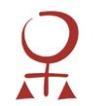Satchwell Report in Equal Education Inquiry disregards sexual harassment complainants:
In August 2018 the Women’s Legal Centre (WLC) received instructions on behalf of numerous women to provide them with advice and to represent them before an Inquiry established by Equal Education (EE) to investigate allegations of sexual harassment and similar misconduct by Doron Isaacs (Isaacs) during his tenure at EE.
The Terms of Reference also instructed the Panel to review a previous investigation against Isaacs for sexual harassment in 2011 and to look into allegations of silencing and intimidation of complaints against Isaacs. The Panel was further tasked with investigating allegations contained in the Mail and Guardian against Isaacs and Zackie Achmat (Achmat).
On 27 November 2018 two members of the Panel appointed to conduct the above investigation released a report and findings. Alarmingly, the report finds that no evidence was put before the Panel related to sexual harassment or any similar misconduct on the part of Isaacs, and similarly finds that the 2011 Committee which investigated Isaacs had acted appropriately in exonerating Isaacs in 2011.
The WLC supported 19 persons who came forward to make confidential submissions to the Panel. The manner in which the submissions were made was in terms of the Terms of Reference that established the Panel and which provided for complainants to make submissions confidentially.
Our clients chose this option, as per the Terms of Reference. Our clients were prepared to engage with the Panel via the WLC; however the Panel never engaged with them, nor asked them a single question. The WLC, on behalf of our clients, consistently sought clarity from the Panel members on the nature of the investigation and the process it was to follow.
The Panel consistently advised us that they had made no decisions on either point. The process set up by the Panel provided no protection to our clients from intimidation or future persecution for their participation. Our concerns around the secondary victimisation of our clients were raised with the Panel but were never directly responded to.
The process which the Panel designed made provision for the complainants to give testimony solely to the Panel and did not require them to answer questions from Isaacs, either before or during the hearing, as well as assuring complainants that they would be afforded complete confidentiality. The Report makes no mention of this process, and, instead, finds that our clients’ evidence should be disregarded.
Two Panel members have now released a Report which makes findings on the basis of having entirely excluded the submissions from our clients which were put before them by the WLC, ostensibly because of the manner in which the evidence was presented. It is important to note that the evidence was excluded based on criteria that were not communicated to us, nor to any of our clients.
The WLC will continue supporting the 19 complainants who bravely came forward to give their evidence to the Panel despite significant fears that this might prejudice their futures in the social justice sector or subject them to the stigma that attaches itself to women who are victims of sexual harassment and who dare to speak out.
We understand that a second report is being drafted by the third member of the Panel, namely Professor Rashida Manjoo, the former UN Special Rapporteur on Violence against Women. We understand that this Report is to be released on 10 December. We find it curious that the Satchwell Report was released ahead of this second report which raises questions about the Panel’s internal workings.
Our clients’ courage and unwavering commitment to participate in this process has come at great personal cost to each of them. We recognize the emotional and psychological burden that they, as victims, have carried, and how this is further exacerbated by a Report that fails to consider the substance of their complaints.
Statement issued by Women’s Legal Centre, 28 November 2018

